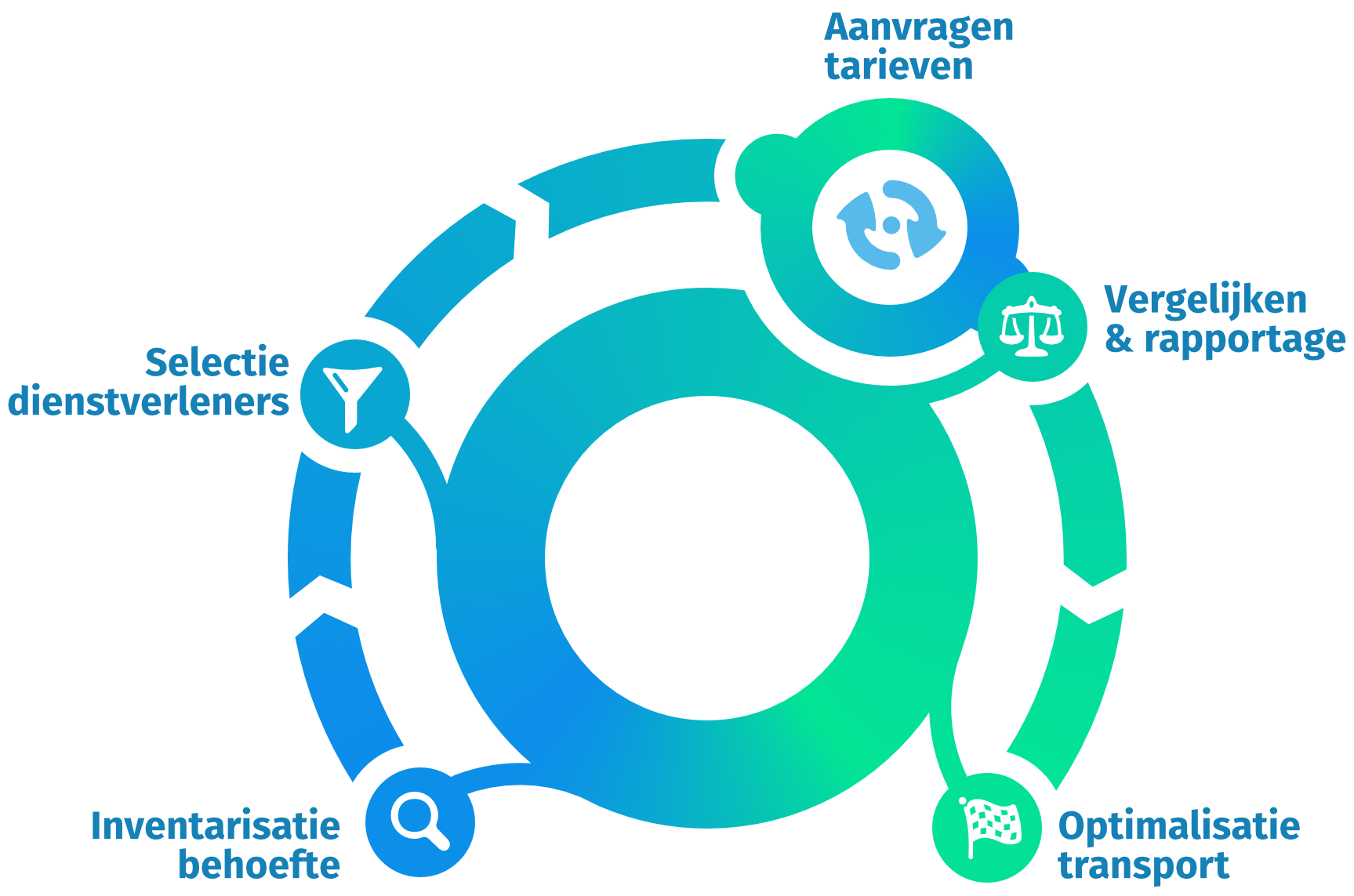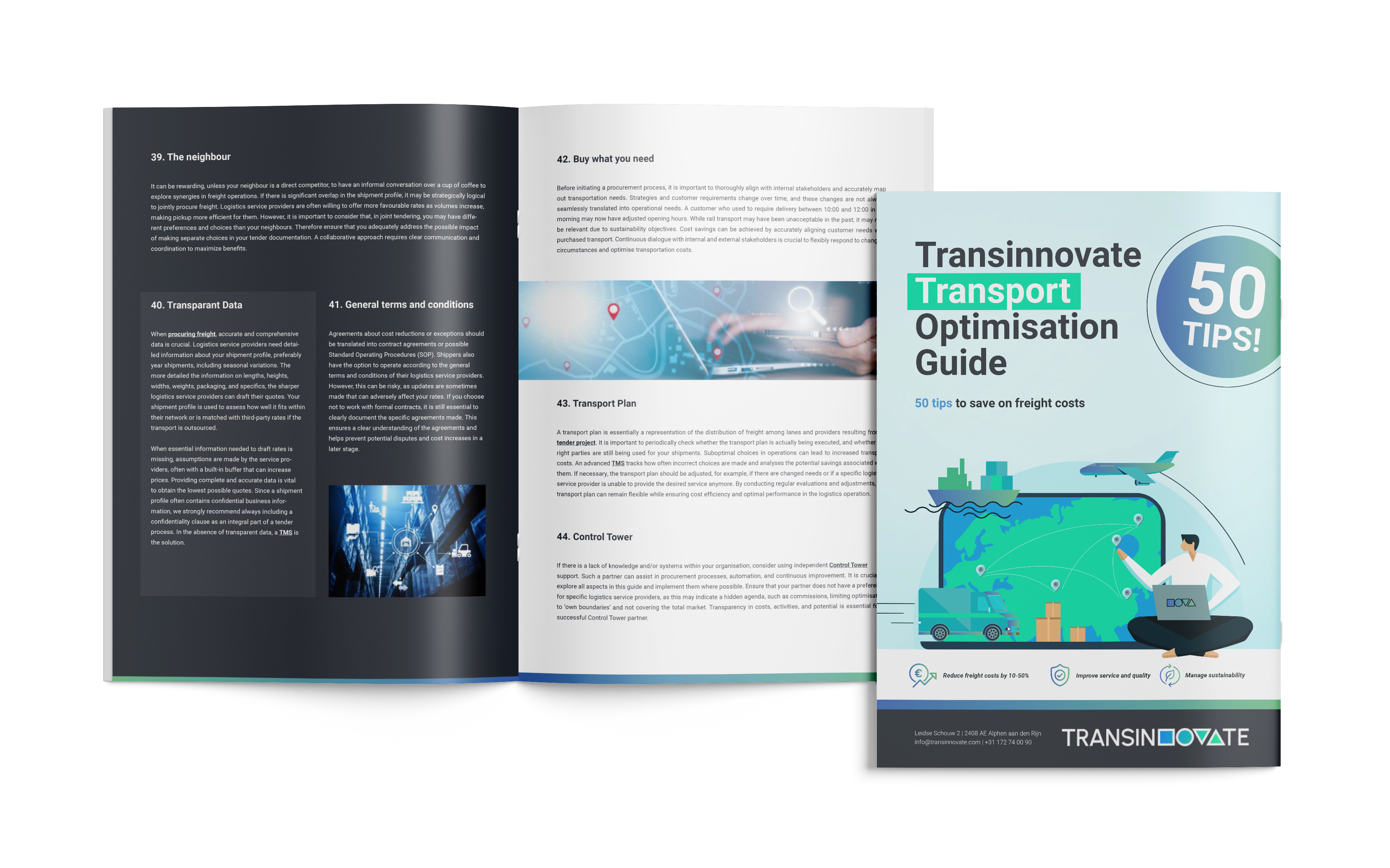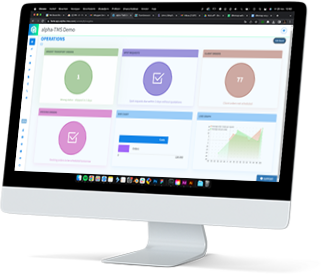Wat is de FAS Incoterm®?
FAS (Free Alongside Ship / Vrij Langszij Schip) is een van de officiële Incoterms® 2020-regels die zijn uitgegeven door de Internationale Kamer van Koophandel (ICC). Deze term is uitsluitend van toepassing op zeetransport en betekent dat de verkoper verantwoordelijk is voor het leveren van de goederen langszij het schip in een genoemde haven van verzending. Op dat moment gaan het risico en de kosten over van de verkoper naar de koper.
Incoterms® zijn wereldwijd gestandaardiseerde handelsvoorwaarden die bepalen wie verantwoordelijk is voor transport, kosten en risico’s tijdens internationale verzending. De meest recente versie, Incoterms® 2020, is van kracht sinds 1 januari 2020.
Een overzicht van alle Incoterms is hier beschikbaar.
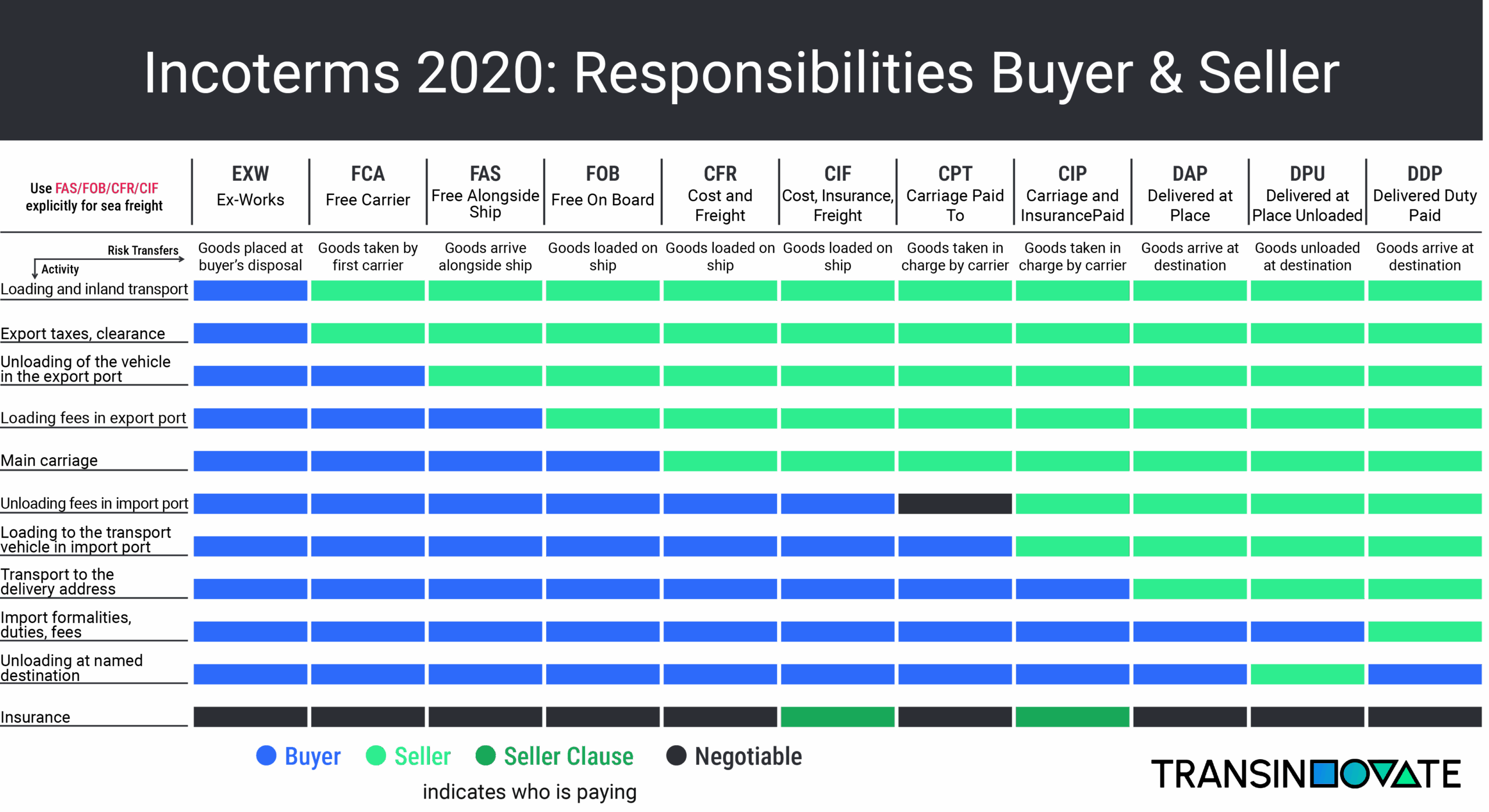
De Free Alongside Ship (FAS) Incoterm is een internationale handelsafspraak die wordt gebruikt voor vervoer over water.
Bij een FAS-regeling is de verkoper verantwoordelijk voor het leveren van de goederen aan een genoemde haven, langszij het schip. De overdracht van risico en kosten vindt plaats wanneer de goederen langszij het schip zijn geplaatst en gereed zijn voor export.
Voordelen van FAS Incoterm®
Duidelijke risico-overdracht
FAS biedt een duidelijk gedefinieerd punt waarop de verantwoordelijkheid overgaat van verkoper naar koper: wanneer de goederen langszij het schip worden geplaatst. Dit vermindert het risico op misverstanden of geschillen.
Koper heeft controle over hoofdtransport
Zodra de goederen langszij het schip zijn geplaatst, neemt de koper het transport over. Dit geeft hem de mogelijkheid om zijn eigen vervoerder te kiezen, het vaarschema te bepalen en mogelijk lagere vrachtkosten te onderhandelen.
Breed toepasbaar in maritieme handel
FAS is bijzonder geschikt voor bulklading en zendingen met groot volume, waarbij de koper ervaring heeft met zeevracht of de logistiek vanaf de vertrekhaven zelf wil beheren.
Nadelen van FAS Incoterm®
Beperkte verantwoordelijkheid van de verkoper
De verantwoordelijkheid van de verkoper eindigt vóórdat de goederen aan boord van het schip zijn geladen. Als er schade optreedt tijdens het laden of hoofdtransport, draagt de koper het risico en moet hij zelf de verzekering of claims afhandelen.
Vroege risico-overdracht
Het risico gaat over naar de koper in de haven, niet pas na het laden of vertrek. Als de goederen beschadigd raken nadat ze langszij het schip zijn geplaatst maar vóór het laden, is de koper alsnog verantwoordelijk.
Risico op geschillen
Er kunnen meningsverschillen ontstaan als het laadproces onduidelijk is of als er problemen optreden tijdens de verzending. Het is cruciaal om in het contract duidelijk vast te leggen wie verantwoordelijk is voor het laden, inspecties en documentatie.
Voorbeeld van FAS in de praktijk
Een wijnproducent in Frankrijk verkoopt bulkwijn aan een distributeur in de Verenigde Staten. De overeengekomen Incoterm is FAS – Haven van Marseille.
De verkoper levert de wijn in vaten aan de haven van Marseille en plaatst ze langszij het schip. Vanaf dat moment regelt de koper het laden, het zeevervoer naar New York en de inklaring.
Samenvatting Free Alongside Ship
Transportwijze: Maritiem (alleen zee of binnenvaart)
Verkopersverplichting: Goederen langszij het schip leveren in genoemde haven
Kopersverplichting: Laden, hoofdvervoer, verzekering, importafhandeling
Risico-overdracht: Wanneer goederen langszij het schip zijn geplaatst
Ideaal voor: Kopers die controle willen over zeevracht en logistiek
Samengevat biedt FAS een duidelijke risico-overdracht en is het geschikt voor kopers die controle willen over het transport. De verantwoordelijkheid van de verkoper is echter beperkt nadat de goederen langszij het schip zijn geplaatst. Goede communicatie en een zorgvuldig opgesteld contract zijn essentieel om een soepele FAS-transactie te garanderen en mogelijke geschillen te voorkomen.
Vraagt u vaak om goederen te vervoeren via korte of lange zeetransporten, als verkoper of koper?
Wilt u bespreken welke Incoterms® en transportoplossing het beste bij uw situatie passen?
Hulp nodig bij het kiezen van de juiste Incoterm®?
Importeert of exporteert u vaak goederen via zeevracht?
Weet u niet zeker welke Incoterm het beste bij uw bedrijf past?
Neem contact op met onze logistieke experts voor persoonlijk advies over Incoterms® en optimale transportoplossingen.
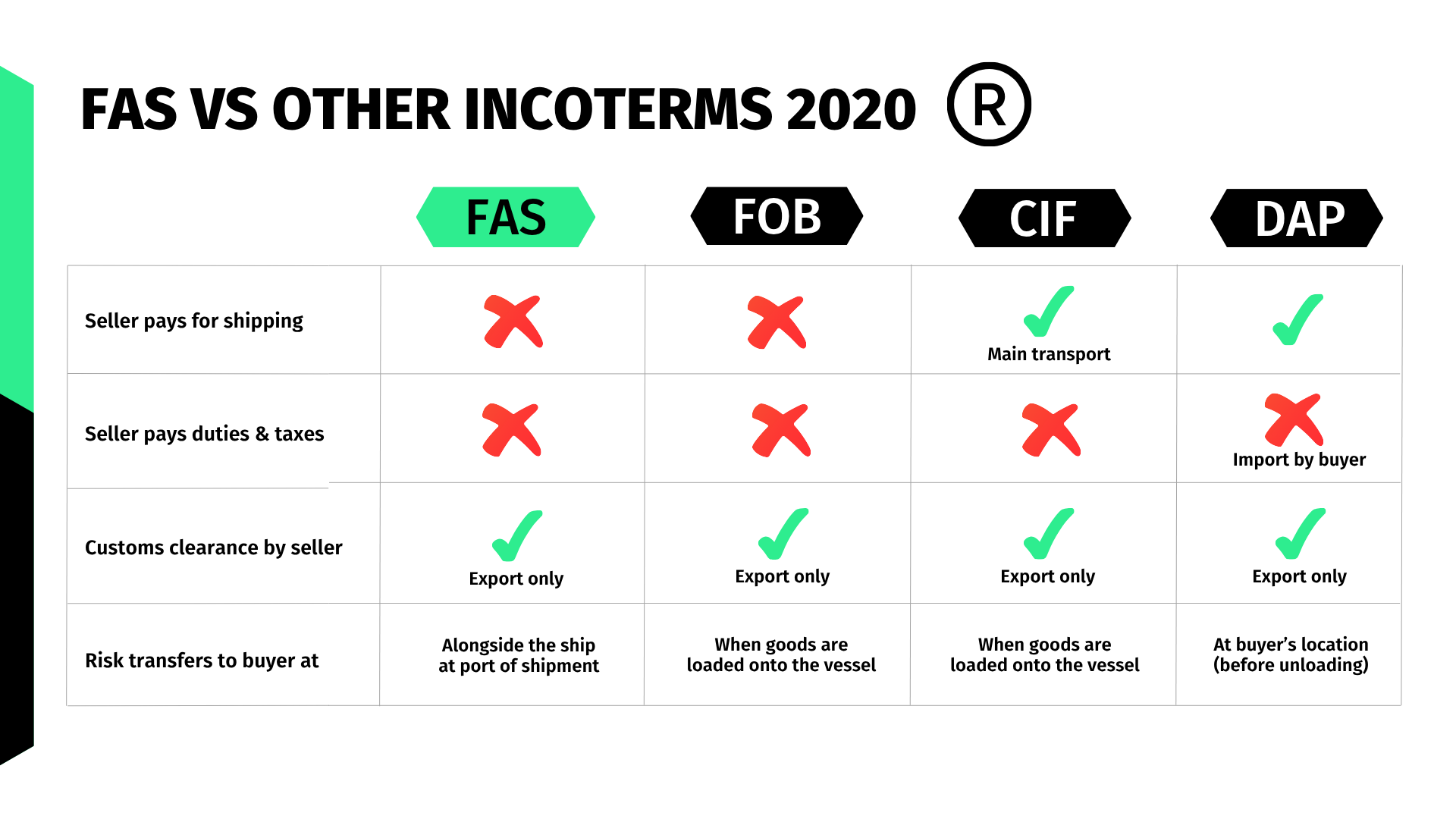
FAS staat voor Free Alongside Ship – wat betekent dat de verkoper de goederen langszij het schip in de haven levert, en de koper daarna alles regelt.
De koper betaalt de zeevracht onder FAS-voorwaarden, inclusief het laden, transport en de verzekering nadat de goederen in de haven zijn geleverd.
Nee. Voor containerlading zijn voorwaarden zoals FCA (Free Carrier) of FOB doorgaans geschikter, omdat de procedures in haven terminals verschillen van traditioneel bulkvervoer.

